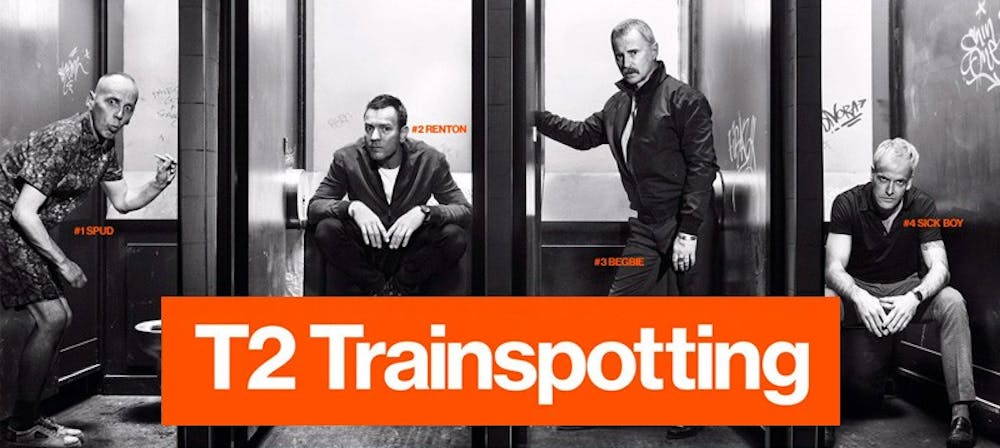Trainspotting was one of the definitive films of the 1990s. A brash, gritty story of Scottish heroin addicts featuring a unique soundtrack and memorable, idiosyncratic characters, the movie hit independent cinema like a meteor. It was essentially Pulp Fiction for our friends across the pond. Almost exactly 20 years later, we have T2 Trainspotting (an admittedly bizarre title), in which director Danny Boyle and the whole cast have decided to revisit these characters as they enter middle age. It's extremely rare to find a sequel made 20 years after the original in which the entire original cast comes back to participate. For that reason alone, this film is fascinating to watch: doing a double feature with these movies invokes a Boyhood–like feeling, where time seems to have passed before our very eyes. Of course, creating a sequel to such an iconic and beloved story is a risky move. Street spoke with Boyle, who explained the initial fear he had with returning to these iconic characters and storylines. He chuckles, “If this is bad, we’ll get absolutely hung drawn and quartered!”
At my screening, a viewer told Boyle that he had never seen the first Trainspotting and that this movie worked well as a stand–alone film. He may have thought so, but T2 Trainspotting is packed with music cues, lines of dialogue and even footage from the first movie that, without seeing the first one, would be almost impossible to get a full grasp of. This sequel loses none of the original film's entertaining chaotic energy. I don’t think I have ever seen a sequel before that was so directly intertwined with the original; while some may find the stylistic similarities lazy, it only enhances the repetitious, cyclical nature of these men’s lives. Boyle admits that this sequel “did strip the early film of some of its glamour, deliberately, because they’re 46, and they’re fucked.” Each character is essentially in the same position as they were 20 years ago—still drug–addicted, still purposeless or still violent. Only Diane (Kelly Macdonald), the one prominent woman from the first film, has shed her young, irresponsible shell and become a high–powered attorney.
Though the film never telegraphs it, at its core there seems to be a subtle commentary on gender and male social interaction. In one scene, Simon (Jonny Lee Miller) and Begbie (Robert Carlyle) concoct a scheme and end by roaring at each other in a fit of masculine, aggressive self–expression, like a couple of boys on a playground. Boyle attests to this, stating, “Every scene I watched, it was all about how men behave…really, men hang on to this golden period.” He goes on to explain, “It’s the golden period of your 20s when as a man, you emerge into kind of power.” Though Boyle never directly states it, it feels as though this movie is as much a product of the characters’ aging as his own. This movie functions as a love letter to that past, but also reveals just how pathetic it can be to wallow in what once was. The gang getting into bar fights and gallivanting about Edinburgh with reckless abandon feels inspired and charged when they’re 26–years–old; when they’re in their 40s with wives and kids, it suddenly feels much more reprehensible.
Essentially, this is Trainspotting, but louder and more extreme—but perhaps that was intended. Perhaps every callback to the first Trainspotting is there to show us how little these characters have progressed. Maybe their reunion at the beginning of the sequel shows how desperate they are to return to the old days, when they could pump their veins with heroin in someone’s dilapidated apartment without a care—but the world is different now. T2 Trainspotting is a commentary on the sequel's own existence. It teases just how fun it can be to wallow in nostalgia, while simultaneously revealing how detrimental that can really be.

